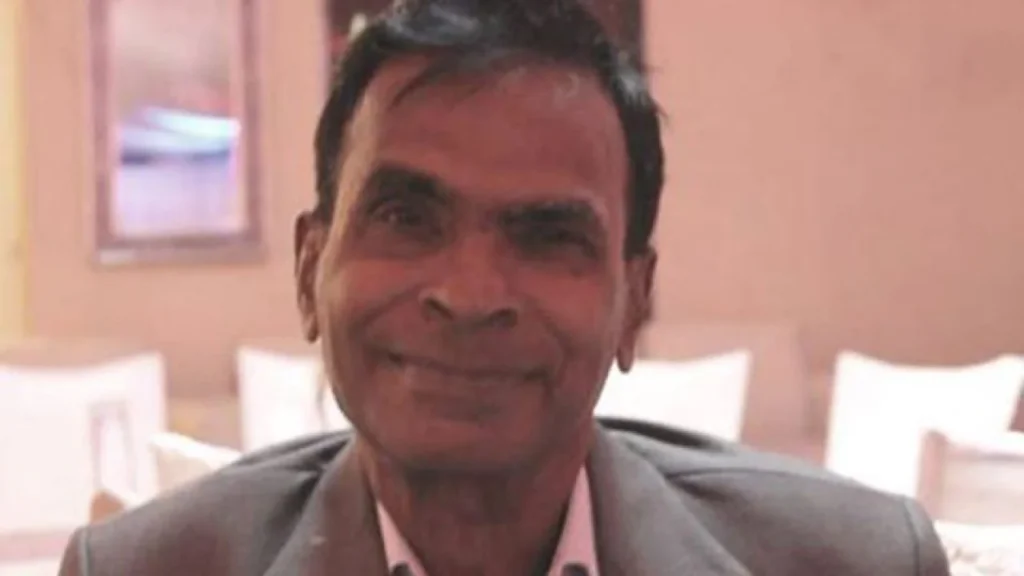John Permal’s life was a race against time, and for nearly a decade, he was the lightning that Pakistan’s tracks had never seen before. Born on 31 May 1946 in Karachi, he was just another boy running through the bustling streets to school, but those hurried footsteps became the first beats of a sprinting symphony. Teachers at St. Anthony’s and later St. Patrick’s School noticed that this boy seemed to run not with legs alone but with the fury of a storm. His start was not polished, but it carried the rawness of thunder about to crack open the sky.
The Rise of a Storm
John Permal name first rumbled across the nation at the 1965 National Games in Lahore. Against seasoned athletes, John blazed down the track in the 100 meters. Though he finished second behind German sprinter Gert Metz, that race crowned him Pakistan’s fastest man. From that moment until 1974, no one in the country could outpace the wind that Permal had become. The tracks of Rawalpindi (1967), Dhaka (1968), Karachi (1970), Nawabshah (1971), and Lahore again in 1973, all witnessed him sprint like a streak of lightning across the horizon, leaving rivals chasing shadows.
If the 100 meters were his kingdom, the 400m relay in Dhaka in 1968 was his thunderclap. Representing Sindh, Permal and his team roared down the track to snatch gold, silencing the more established teams. It was the rare moment when an underdog’s storm drowned out the noise of giants. His international career was equally spirited: he represented Pakistan at the Asian Games in Bangkok (1966 and 1970), the 1970 Commonwealth Games in Edinburgh, and stood tall among the world’s best at the 1972 Munich Olympics. His finest recorded time, 10.4 seconds in Bonn, Germany, in 1969, was proof that he wasn’t just fast by Pakistani standards; he was running with the world’s winds.
Racing Against Shadows
Yet every storm meets resistance. While cricket and hockey basked in the golden glow of national attention, athletics remained a deserted track. John Permal’s victories came without lucrative contracts, without fanfare, without the embrace of institutions that could have lifted him higher. He often admitted that sprinting, for him, was a passion and a hobby, not a career. Behind every explosive start and blazing finish was the quiet struggle of a man who had to balance studies, livelihood, and training. In an era when athletes elsewhere were nurtured like prized flames, Pakistan’s fastest man was left to burn alone in the shadows.
By the mid-1970s, the thunder began to fade. John Permal stepped away from the track, not because the storm within him had calmed, but because the sky above offered no light. Unlike cricket heroes who moved into commentary boxes or hockey legends who became coaches, John disappeared from the spotlight. His name, once chanted in stadiums, drifted into silence. Years later, when pancreatic cancer struck him in 2018, few outside athletics circles even knew where the country’s fastest man was or what battles he now faced. He passed away in March 2019 at the age of 72, his last sprint run against time itself.
The Forgotten Lightning
The tragedy of John Permal is not that he lacked greatness but that greatness was forgotten. He had the stride of a gale, the finish of a lightning bolt, and the determination of a man running against a headwind. But without history books, sponsorships, or state recognition to anchor his name, his legacy slipped through the cracks.
Today, when we celebrate sporting icons, his story reminds us that speed is fleeting, and memory even more so, unless we choose to preserve it. John Permal was more than a man who ran fast; he was the storm that once shook Pakistan’s tracks. His legacy now rests not in medals alone but in the lesson that a nation’s sporting history is not written only by those under the brightest spotlight; it is also shaped by those who ran like thunder and were lost in the wind.
Also Read: Faisal Shafi: Unstoppable Strides of Valor, Miles of Duty



